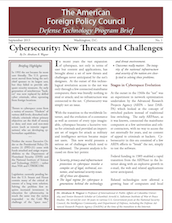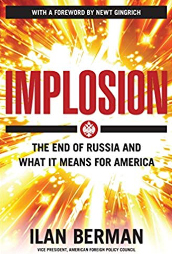China Reform Monitor: No. 1061
Turkey chooses China for missile defense system;
Beijing pumping funds into Central Asia for “
New Silk Road&rdquo
Turkey chooses China for missile defense system;
Beijing pumping funds into Central Asia for “
New Silk Road&rdquo
Russian S-500 interceptors target 2017 IOC;
U.S.-Israeli contractors plan patriot missile upgrade;
New U.S.-South Korea plan to counter the DPRK
Next month, if all goes well, Ukraine will sign a "deep and comprehensive free-trade agreement" (DCFTA) and an "association agreement" with the European Union. Such accords do not represent applications for or endorsements of Ukrainian membership in the EU. Still, they would mark a milestone in cementing Ukraine's adhesion to European commercial and economic standards, which would immensely enhance Kiev's competitiveness and growth prospects. Most of all, if implemented, the accords would represent a first and decisive step toward real European integratio
Afghan candidates for presidential election set;
Karzai lashes out;
Baradar still under house arrest
Activist confined to psychiatric ward;
A new National Guard for Russia?
The deal that re-opened America’s government and averted a national default should evoke little cheer, for the Washington spectacle of recent weeks has hurt America’s image and influence around the world.
The impacts to date are serious enough. They include a Chinese call to “de-Americanize” the world’s economy to lessen its dependence on the U.S. dollar and more threats from credit rating agencies of a U.S. debt downgrade that, were it to come, would rattle both the U.S. and global economies.
All this has left the Iranian regime battered, and eager for an easing of the economic pain. This is the motivation behind the charm offensive undertaken in recent weeks by Iran’s new, “moderate” president, Hassan Rouhani, as well as his calls for “constructive engagement” with the West.
Special CRM: Regional Responses to China’
s East China Sea Air Defense Identification Zone (ADIZ)
Taiwan receives new U.S. surveillance craft;
Afghanistan welcomes China’
s New Silk Road
Egypt security forces targeted as Morsi trial set;
Rebels trying to consolidate foothold in Syrian north;
Stolen U.S. military equipment in Libya in dangerous hands
Indo-Pak leaders talk amid LoC violence;
Tragedy in Pakistan;
India tests AGNI-V
African countries scrutinize Chinese investments;
Afghanistan welcomes China’
s New Silk Road
Greenpeace activists charged with piracy;
U.S. surpasses Russian oil production totals
In order to maintain its space superiority, the United States currently relies on Russian technology – so much so, in fact, that every once in a while American claims to space superiority seem rather hollow. This state of affairs has been brought into sharp focus in recent weeks.
Far from robust, the federation is facing implosion
Don’t let Russia’s recent attempts to play peacemaker on Syria fool you — U.S.-Russian relations are still on the rocks. A range of issues — from Russia’s stubborn support for the Iranian regime to the Kremlin’s very public snub of the White House in granting asylum to fugitive whistleblower Edward Snowden — have cast a profound pall over bilateral ties. In the process, they have sounded the death knell for the vaunted “reset” of relations with Russia that President Obama made a centerpiece of his foreign-policy agenda during his first term in office.
Don’t let Vladimir Putin fool you. Russia’s president may be cutting an imposing figure on the world stage these days, but his country faces a daunting future
Iranian President Hassan Rouhani’s charm offensive has already changed the global dynamics over Iran’s nuclear pursuit to Tehran’s advantage, with the West easing its pressure and Israel now positioned as a stubborn outlier.
Also to Tehran’s benefit, Rouhani’s efforts have opened a clearer fissure between Washington and Jerusalem. Not only is U.S. President Barack Obama clearly banking on diplomatic success while a skeptical Israeli Prime Minister Benjamin Netanyahu reiterates his threats of an Israeli military strike, but Obama also seems more likely to take a deal with Tehran that Netanyahu would find hard to swallow.
If you grew up any time in the last half-century, chances are you have fond memories of Charles Schulz’s iconic “Peanuts” comic strip and its hard-luck protagonist, Charlie Brown. Each week brought a new misfortune for the unhappy Charlie, but never more so than when his crafty friend Lucy offered to play football — a game that, no matter how many times it was attempted, invariably ended with Charlie flat on his back.
The British historian AJP Taylor believed that in Germany, classical liberalism always fails in the competition of political ideas. For over six decades, the Free Democratic Party (FDP) has tried to prove Taylor wrong. The FDP—which calls itself “Die Liberalen”—champions free-market economics and protection of civil liberties, while remaining the most “Atlanticist” of the German political parties.
Syrian refugees causing turmoil in Lebanon;
Syrian rebels relinquish opposition coalition;
Stolen U.S. military equipment in Libya in dangerous hands
More attacks in Dagestan;
IOC will not challenge Russian law
The implications were chilling. In the summer of 2012, as murder and mayhem reigned on both sides of Syria’s civil war, someone—likely from the opposition—released a list of 32 names on Facebook. These weren’t people invited to a wedding; they weren’t members of the Syrian national soccer team; and they weren’t guests for a weekend jaunt to a fancy seaside resort in Latakia. These were people someone wanted dead.
China now alone with DPRK in blocking Facebook;
China signs $11.6 billion investment deal with Kenya

In recent years the vast expansion of cyberspace, not only in terms of user but content and applications, has brought about a set of new threats and challenges never anticipated by the net’s designers. At the outset of this technological revolution access to the net was only through a few connected mainframe computers; there was literally nothing to steal or attack; and no infrastructure was connected to the net. Cybersecurity was simply not an issue...
China pushing for resumption of six-party talks;
China detains Chinese experts with suspected ties to Japan
Russia and U.S. reach deal on Syria;
Kremlin denounces U.N. report
MB spokeman arrested in Egypt;
National dialogue talks in Bahrain on hold;
Oil prices ease on Libya, Syria news
New campaign in online censorship;
China top destination for illicit African ivory

Today, Putin’s Russia is fast approaching a social and political crisis—one that promises to be every bit as profound as the fall of the USSR. Author Ilan Berman tackles the crisis that has Russia on the fast track to ruin, and the grave danger Russian collapse poses to America’s security, in his new book, Implosion.
Egyptian government destroys tunnels, hurts the region and Hamas;
Al-Nusra a threat to Turkey;
$30 Billion in deals between China and Kazakhstan
Xinjiang an “
information black hole”
China provides surveillance tech to Kyrgyz, Nepali security forces
On the surface, Russia seems to be a nation on the march. Last week, Russia's larger-than-life president, Vladimir Putin, strong-armed the United States into accepting his plan for dealing with Syria's chemical weapons. There are signs Putin is preparing to expand Russia's role in Iran and its nuclear program, which successive American administrations have failed to shut down.
Iran's economic crisis deepens...;
...as regime readies nuclear bargaining chip;
A helping hand from Moscow
Putin appeals to the American public;
Russia celebrates “
day of conception”
India has launched a bold initiative to bolster its influence throughout Southeast and Central Asia. The Indian government is investing significant capital in Iran’s Chabahar free-trade zone and the surrounding infrastructure to secure its economic interests throughout the region, reduce Pakistan’s sphere of influence and compete with China. While this policy seems attractive in the short term, this course of action is fraught with unanticipated dangers. Investing in Chabahar not only allows Iran’s rogue regime to fill its coffers with the hard currency it needs to repress its people and facilitate terrorism, but may also harm India’s strategic relationship with one of its most important allies, the United States
Punjab militants flock to border;
Round two in Maldives poll;
Hindu-Muslim violence in northern India
Divide over Syria widens;
Another increase to Russia’
s Mediterranean fleet
Whatever happened to the war on terror? Unless you've been paying close attention, you could be forgiven for thinking that America's struggle against radical Islam is largely a thing of the past.
Barack Obama owes Vladimir Putin. Big time. That's the only conclusion one can draw from the president's nationally televised address on Syria on Tuesday evening. In it, Obama talked tough, highlighting the need to hold the Assad regime to account for its atrocities. But he also made clear that plans for U.S. military action have been deferred, perhaps even tabled, pending the results of Russia's plan to place Syria's chemical weapons under international control — a proposal that Damascus has hastily accepted.
Morsi and MB to stand trial for murder;
Saudi Arabia's domestic violence legislation;
Rebels seize Libyan oil fields
Kremlin warns U.S. against making “
tragic mistake”
Ukraine tells Moscow to accept “
reality&rdquo
Pakistan federal government to address unrest in Karachi;
Pakistan weapons program principle concern for U.S. intel;
Record-setting heron seizure in Sri Lanka
Kabul reviewing massive Chinese mine investment;
Meth from DPRK flows into northeastern China
As the White House considers taking military action against Syria for its use of chemical weapons against innocent civilians, the president has turned to Congress to authorize airstrikes. Lawmakers weighing their decision on the most consequential policy vote since the 2002 authorization for war in Iraq should encourage the President to also consider using an additional tool to force the Syrian regime to change course: stepping up economic warfare against Syrian banks and institutions that do business with them.
Musharraf charged in Bhutto murder;
Karzai withholding endorsement;
Afghan forces find success in Logar
China, India to hold first joint military drills in 5 years;
Paramilitary troops fire on Uighur protestors
Iran's illicit finance hubs;
Rouhani starts to tackle Iran's economic malaise;
Second thoughts on Syria?
The ability to recognise and respond to threats just over the horizon is justifiably considered part of the collective job description of US defence planners and members of Congress. However, all too often US defence planning falls short of anticipating strategic trends, let alone crafting clear and comprehensive policies to address them.
The congressional debate over whether to support President Barack Obama's call for military action against Syria will revolve around the issue of "U.S. credibility," but here's the sobering fact: U.S. credibility around the world has already taken a huge hit due to White House actions of recent weeks.